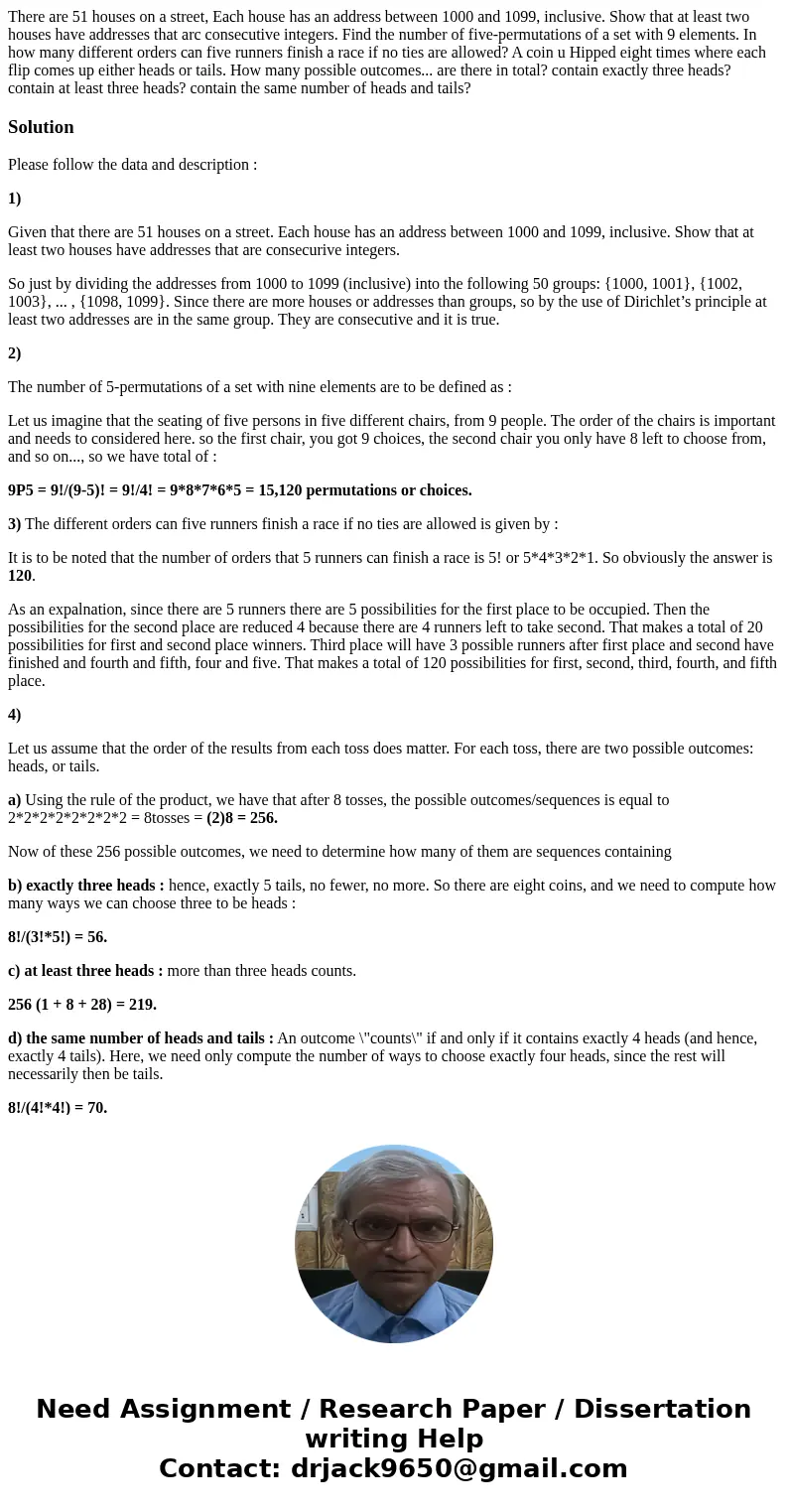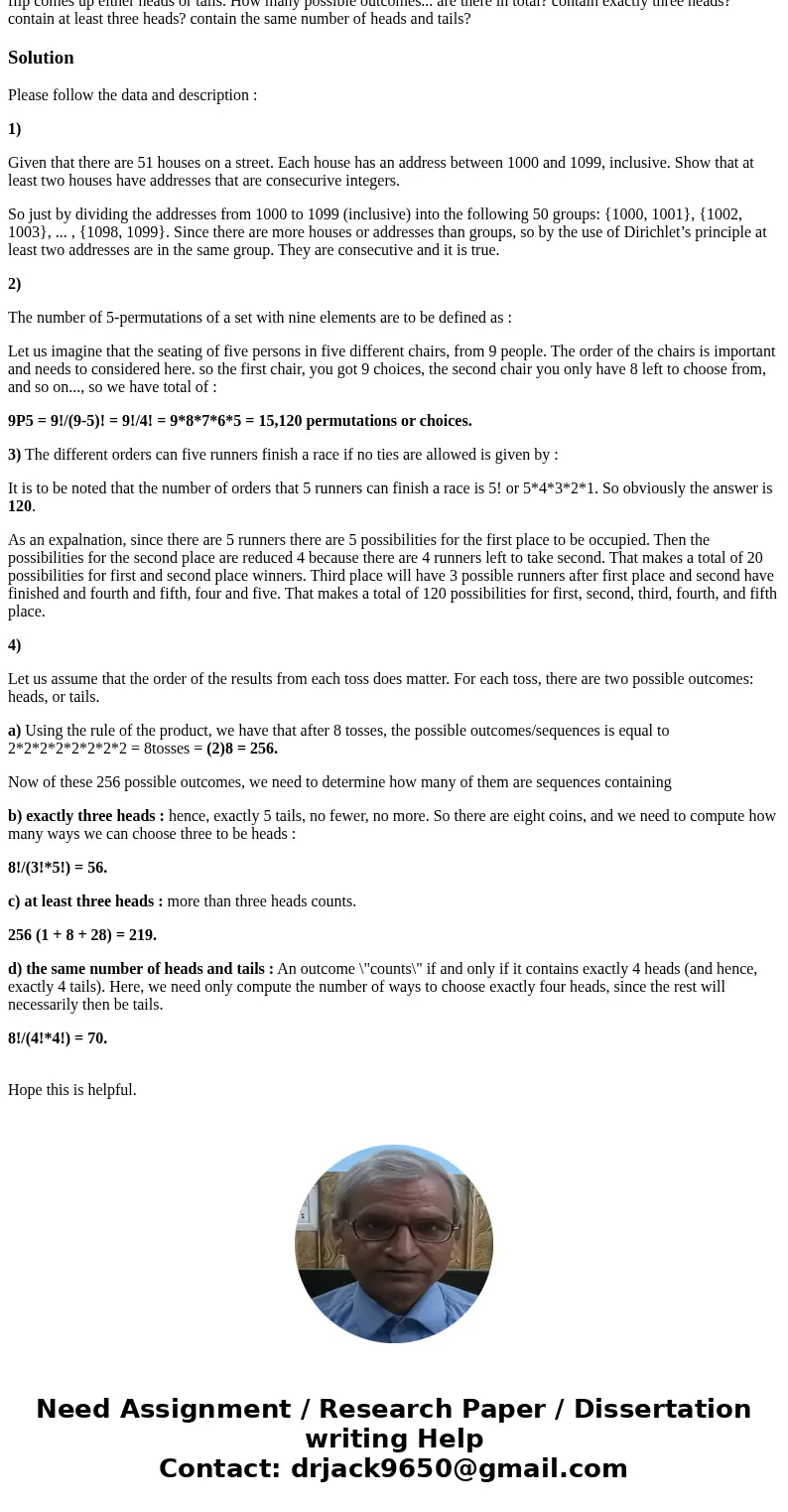There are 51 houses on a street Each house has an address be
Solution
Please follow the data and description :
1)
Given that there are 51 houses on a street. Each house has an address between 1000 and 1099, inclusive. Show that at least two houses have addresses that are consecurive integers.
So just by dividing the addresses from 1000 to 1099 (inclusive) into the following 50 groups: {1000, 1001}, {1002, 1003}, ... , {1098, 1099}. Since there are more houses or addresses than groups, so by the use of Dirichlet’s principle at least two addresses are in the same group. They are consecutive and it is true.
2)
The number of 5-permutations of a set with nine elements are to be defined as :
Let us imagine that the seating of five persons in five different chairs, from 9 people. The order of the chairs is important and needs to considered here. so the first chair, you got 9 choices, the second chair you only have 8 left to choose from, and so on..., so we have total of :
9P5 = 9!/(9-5)! = 9!/4! = 9*8*7*6*5 = 15,120 permutations or choices.
3) The different orders can five runners finish a race if no ties are allowed is given by :
It is to be noted that the number of orders that 5 runners can finish a race is 5! or 5*4*3*2*1. So obviously the answer is 120.
As an expalnation, since there are 5 runners there are 5 possibilities for the first place to be occupied. Then the possibilities for the second place are reduced 4 because there are 4 runners left to take second. That makes a total of 20 possibilities for first and second place winners. Third place will have 3 possible runners after first place and second have finished and fourth and fifth, four and five. That makes a total of 120 possibilities for first, second, third, fourth, and fifth place.
4)
Let us assume that the order of the results from each toss does matter. For each toss, there are two possible outcomes: heads, or tails.
a) Using the rule of the product, we have that after 8 tosses, the possible outcomes/sequences is equal to 2*2*2*2*2*2*2*2 = 8tosses = (2)8 = 256.
Now of these 256 possible outcomes, we need to determine how many of them are sequences containing
b) exactly three heads : hence, exactly 5 tails, no fewer, no more. So there are eight coins, and we need to compute how many ways we can choose three to be heads :
8!/(3!*5!) = 56.
c) at least three heads : more than three heads counts.
256 (1 + 8 + 28) = 219.
d) the same number of heads and tails : An outcome \"counts\" if and only if it contains exactly 4 heads (and hence, exactly 4 tails). Here, we need only compute the number of ways to choose exactly four heads, since the rest will necessarily then be tails.
8!/(4!*4!) = 70.
Hope this is helpful.


 Homework Sourse
Homework Sourse